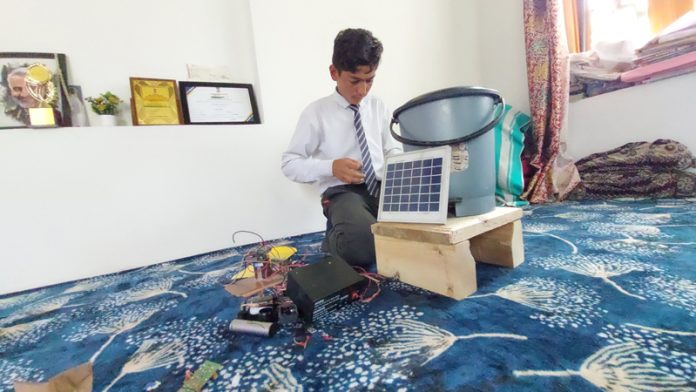
ISLAMABAD - The crackdown by the authorities after the May 9, 2023 protests, which unraveled into nationwide riots following the arrest of Imran Khan, deeply impacted politics not only at a national level but also forced a new change within Pakistan Tehreek-i-Insaf. The deck reshuffled as key leaders exited stage, either in the form of arrests or going into hiding, leaving room for a new breed of “leaders” to emerge. TikTokers, YouTubers, and a handful of fresh-faced lawyers have now become the unexpected faces of the party.
PTI was earlier a blend of some relatively new and some traditional politicians. Men and women who built their reputations in the rough-and-tumble of constituency politics. But that foundation has shifted, much to the frustration of stalwarts like Fawad Chaudhary, who served as the information minister in the last PTI government, and belongs to a political family with a long history in the government and opposition benches.

“The establishment destroyed political careers within PTI by imprisoning and torturing traditional constituency politicians,” he lamented in a recent TV appearance. In their absence, the gap was filled by social media stars and less experienced advocates, the so-called “TikTokers” who, in his view, lack the gravitas and wherewithal to lead a political movement. It’s not hard to see why Chaudhary and his contemporaries are bitter.
Many, like him, want to rejoin the political party, especially after the Feb. 8 elections. But the space they once commanded has been occupied.
Sanam Javed, for example, who spent 18 months behind bars for her involvement in the May 9 demonstrations, is now lauded as a party hero. Her emergence, alongside other digital media personalities, signals a new kind of politics in Pakistan—one defined by hashtags and viral videos rather than years of experience or electoral know-how. Veterans like Chaudhary are left watching from the sidelines, their influence waning.
Once, they were the public faces of PTI, delivering speeches, debating policy. Now, they watch as these “outsiders,” who they see as interlopers, command the limelight. At a recent press conference, Sanam Javed delivered a fiery speech while Aliya Hamza, a former member of the parliament, stood by her side, a scene that might seem strange to old-guard politicians, but one that reflects the new reality of PTI leadership.
Perhaps most frustrating for these sidelined veterans is the adulation these new faces receive. Sanam Javed and others endured long imprisonments and enjoy a celebrity status among PTI’s base. Their loyalty to the party is unquestioned, and they’ve been rewarded accordingly.
Meanwhile, the likes of Fawad Chaudhary, Asad Umar, and others, who abandoned ship when the waters got rough, now find themselves with little room to reboard. It’s a shift not just in faces, but in style. The TikTok generation is brash, defiant, and unapologetic.
Their politics plays out in short bursts, perfectly packaged for an online audience. It’s a far cry from the slow, deliberate pacing of traditional constituency politics. Sher Afzal Marwat, one of the few lawyers who has managed to ride this wave, stands as an example of the new order.
Marwat, controversial in his own right, mobilized the party when much of the leadership was in hiding. In the February 8 elections, he secured an overwhelming victory in his hometown of Lakki Marwat, triumphing over the son of Maulana Fazlur Rehman. His win signaled a broader shift—a rejection of the old in favour of the new.
Some critics do not see this development as encouraging or promising. They say the social media paratroopers in PTI have made the discourse toxic due to their abusive language and denigrated politics into a vicious cycle of name-calling and never-ending vitriol. Dr Tahir Jamil, an associate professor at the Area Study Centre of Quaid-i-Azam University Islamabad and a political analyst, stated that a constituency politician’s existence is closely tied to the ballot box.
“Their political survival hinges on constituency politics.” Jamil emphasized that the sudden rise of a political figure is linked to the party leadership; if the leadership is popular, the individual gains popularity, but if not, he fades into obscurity. “Had Imran Khan attained only 10 seats [in National Assembly], he should have been discarded but now his political life is still there because voters are with him and his party,” he added.
Regarding Fawad Chaudhary’s recent statement, Dr Jamil pointed out that he seems helpless in the political landscape. “His [Fawad] success was largely due to the PTI ticket. Although he is an anchor, politician, lawyer, and has a strong family background, even then his return to the party seems difficult.
He said that his past political career was not stable in terms of joining other parties before finally coming to the PTI that, he added, might be one of the reasons for his little chances of returning to the party and the frustration. Ali Nawaz Awan, a discontented candidate from PTI in Islamabad, stated that a political vacuum among parties never truly exists and is filled quickly. He emphasized that those who have not experienced a downfall cannot truly rise.
Awan asserted that politics is not a bed of roses; it involves both soft and hard challenges. It is not a smooth journey, and one must confront difficulties in various forms. For Fawad Chaudhary and others hoping for a return to relevance, the political reconfigurations pose a dilemma.
In their absence, the TikTokers have claimed the stage, and it doesn’t look like they’re leaving anytime soon..














